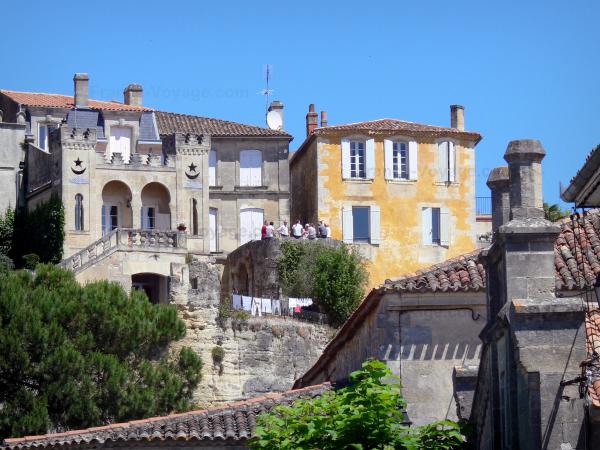
bourg [boo rg; French boor] ExamplesWord Origin noun, plural bourgs [boo rgz; French boor] /bʊərgz; French bur/.
- a town.
- a French market town.
Origin of bourg 1400–50; late Middle English Anglo-French ≪ Late Latin burgus Germanic; see borough Ain [an] noun
- a department in E France. 2249 sq. mi. (5825 sq. km). Capital: Bourg.
Examples from the Web for bourg Historical Examples of bourg
You look very much sprucer than you did the last time you were at Bourg.
Alphonse Daudet
In 1070 it was surrounded with walls and became a “bourg” (borough).
Emile Cammaerts
The day before the Bourg was taken Bertulph managed to effect his escape.
Ernest Gilliat-Smith
The scite of the castle is still visible near the bourg of Montfort.
The Chronicle of the Norman Conquest
Master Wace
I slept at Lyons, and on the morrow by ten in the morning I was at Bourg.
Alexandre Dumas, pre
British Dictionary definitions for bourg bourg noun
- a French market town, esp one beside a castle
Word Origin for bourg C15: French, from Old French borc, from Late Latin burgus castle, of Germanic origin; see borough ain 1 determiner
- a Scot word for own
ain 2 noun
- a variant of ayin
Ain noun
- a department in E central France, in Rhône-Alpes region. Capital: Bourg. Pop: 539 006 (2003 est). Area: 5785 sq km (2256 sq miles)
- a river in E France, rising in the Jura Mountains and flowing south to the Rhône. Length: 190 km (118 miles)
 Liberal Dictionary English Dictionary
Liberal Dictionary English Dictionary